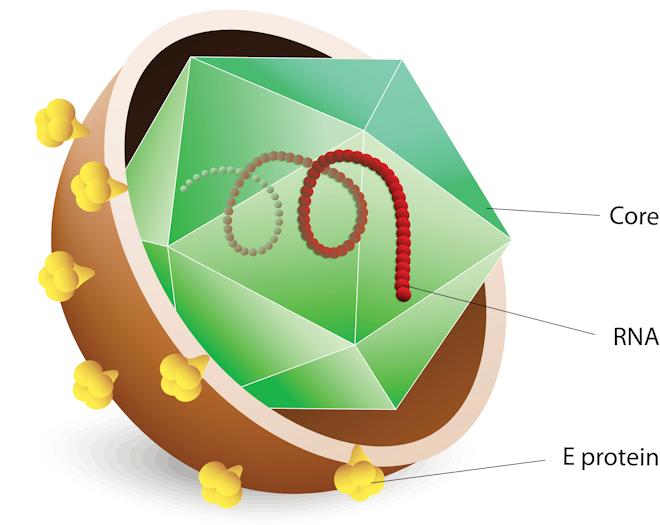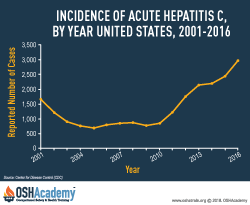Hepatitis C Virus (HCV)
The hepatitis C virus (HCV) is also a significant cause of severe liver damage and death.
In 2018, a total of 15,713 U.S. death certificates had hepatitis C recorded as an underlying or contributing cause of death.
About 2.4 million Americans are currently living with hepatitis C and roughly half are unaware of their infection. Of every 100 people infected with HCV, approximately 5–25 will develop cirrhosis within 10–20 years.
Chronic liver disease and liver cancer caused by chronic HCV infection are a common reason for liver transplants in the United States.
Approximately 70%-80% of people with acute hepatitis C do not have any symptoms. Some people, however, can have mild to severe symptoms soon after being infected, including:
- fever
- fatigue
- loss of appetite
- nausea
- vomiting
- abdominal pain
- dark urine
- gray-colored bowel movements
- joint pain
- jaundice (yellow color in the skin or eyes)
If symptoms do occur, the average incubation period is 45 days after exposure, but this can range from 14 to 180 days. However, many people infected with the hepatitis C virus do not develop symptoms.
Hepatitis C virus-infected individuals are infectious to other people, whether they show symptoms or not. Interestingly, hepatitis C virus is strictly a human disease. It is not known to cause disease in any animals.
Blood testing for hepatitis C virus was not available until 1992. As a result, blood donation agencies did not screen for Hepatitis C virus. Many hepatitis C virus infections occurred as a result of receiving blood products from infected individuals. Today, testing for hepatitis C is common place and should occur after any exposure to potential bloodborne pathogens.
There is no vaccine for hepatitis C.
Knowledge Check Choose the best answer for the question.
2-5. Chronic HCV infection can lead to what disease?
You forgot to answer the question!


